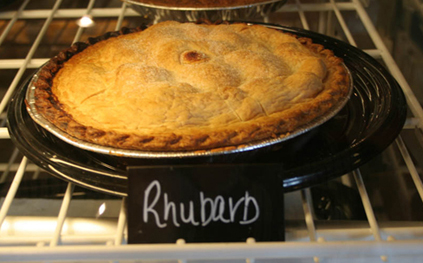Adding Value to Plant Production: A Summary of KY Products
Value-added agriculture” is a broad term encompassing many practices that increase the value of farm products. Value-added agriculture has come to describe practices as varied as agritourism activities that provide consumers value from visiting a farm to large-scale processing endeavors that create mass-market retail food products from commodity crops.
Summary of products & success stories
 While a complete list of value-added crop products is impractical due to the number of these products marketed from Kentucky crops, producers considering new value-added enterprises may be helped by a summary of products with similar marketing characteristics. The major types of value-added products derived from Kentucky-grown crops listed here are grouped by marketing characteristics. This profile also includes brief summaries of several Kentucky value-added producer success stories. This fact sheet is not intended to be a comprehensive listing of Kentucky products. Products and producers cited in the text and photos are provided only as examples and no endorsement is implied. Additionally, no criticism is intended for products not named.
While a complete list of value-added crop products is impractical due to the number of these products marketed from Kentucky crops, producers considering new value-added enterprises may be helped by a summary of products with similar marketing characteristics. The major types of value-added products derived from Kentucky-grown crops listed here are grouped by marketing characteristics. This profile also includes brief summaries of several Kentucky value-added producer success stories. This fact sheet is not intended to be a comprehensive listing of Kentucky products. Products and producers cited in the text and photos are provided only as examples and no endorsement is implied. Additionally, no criticism is intended for products not named.
Food & Non-food Crops
 Producers adding value to crops may be subject to a variety of rules and regulations for the final product marketed. While these regulations can vary according to the specific crop marketed, a major determining factor is whether the final product will be intended for a food or a non-food purpose. Generally speaking, products not intended for human consumption are subject to less stringent regulations and market rules. One notable exception to this general principle would be crops used or marketed for medicinal purposes, such as some non-timber forest products. An overview of Kentucky rules and regulations for producers marketing food products may be found in the related value-added fact sheet, “An Introduction to Policies and Regulations for Kentucky Producers.”
Producers adding value to crops may be subject to a variety of rules and regulations for the final product marketed. While these regulations can vary according to the specific crop marketed, a major determining factor is whether the final product will be intended for a food or a non-food purpose. Generally speaking, products not intended for human consumption are subject to less stringent regulations and market rules. One notable exception to this general principle would be crops used or marketed for medicinal purposes, such as some non-timber forest products. An overview of Kentucky rules and regulations for producers marketing food products may be found in the related value-added fact sheet, “An Introduction to Policies and Regulations for Kentucky Producers.”
CCD Adding Value to Plant Production: A Summary of Kentucky Products
CCD Adding Value to Plant Production: An Overview
CCD Market Research for Value-added Products
CCD Adding Value to Plant Production: An Introduction to Policies & Regulations for Kentucky Producers
CCD Selected Resources for Developing Value-added Products in Kentucky

